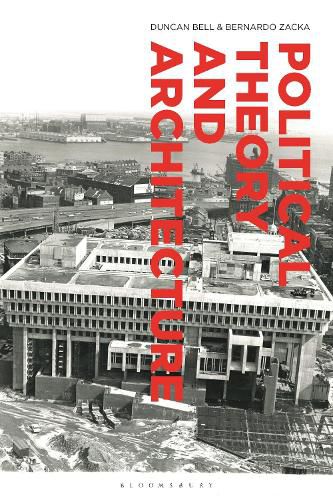Readings Newsletter
Become a Readings Member to make your shopping experience even easier.
Sign in or sign up for free!
You’re not far away from qualifying for FREE standard shipping within Australia
You’ve qualified for FREE standard shipping within Australia
The cart is loading…






What can political theory teach us about architecture, and what can it learn from paying closer attention to architecture? The essays assembled in this volume begin from a common postulate: that architecture is not merely a backdrop to political life but a political force in its own right. Each in their own way, they aim to give countenance to that claim, and to show how our thinking about politics can be enriched by reflecting on the built environment.
The collection advances four lines of inquiry, probing the connection between architecture and political regimes; examining how architecture can be constitutive of the ethical and political realm; uncovering how architecture is enmeshed in logics of governmentality and in the political economy of the city; and asking to what extent we can think of architecture-tributary as it is to the flows of capital-as a partially autonomous social force.
Taken together, the essays demonstrate the salience of a range of political theoretical approaches for the analysis of architecture, and show that architecture deserves a place as an object of study in political theory, alongside institutions, laws, norms, practices, imaginaries, and discourses.
$9.00 standard shipping within Australia
FREE standard shipping within Australia for orders over $100.00
Express & International shipping calculated at checkout
What can political theory teach us about architecture, and what can it learn from paying closer attention to architecture? The essays assembled in this volume begin from a common postulate: that architecture is not merely a backdrop to political life but a political force in its own right. Each in their own way, they aim to give countenance to that claim, and to show how our thinking about politics can be enriched by reflecting on the built environment.
The collection advances four lines of inquiry, probing the connection between architecture and political regimes; examining how architecture can be constitutive of the ethical and political realm; uncovering how architecture is enmeshed in logics of governmentality and in the political economy of the city; and asking to what extent we can think of architecture-tributary as it is to the flows of capital-as a partially autonomous social force.
Taken together, the essays demonstrate the salience of a range of political theoretical approaches for the analysis of architecture, and show that architecture deserves a place as an object of study in political theory, alongside institutions, laws, norms, practices, imaginaries, and discourses.